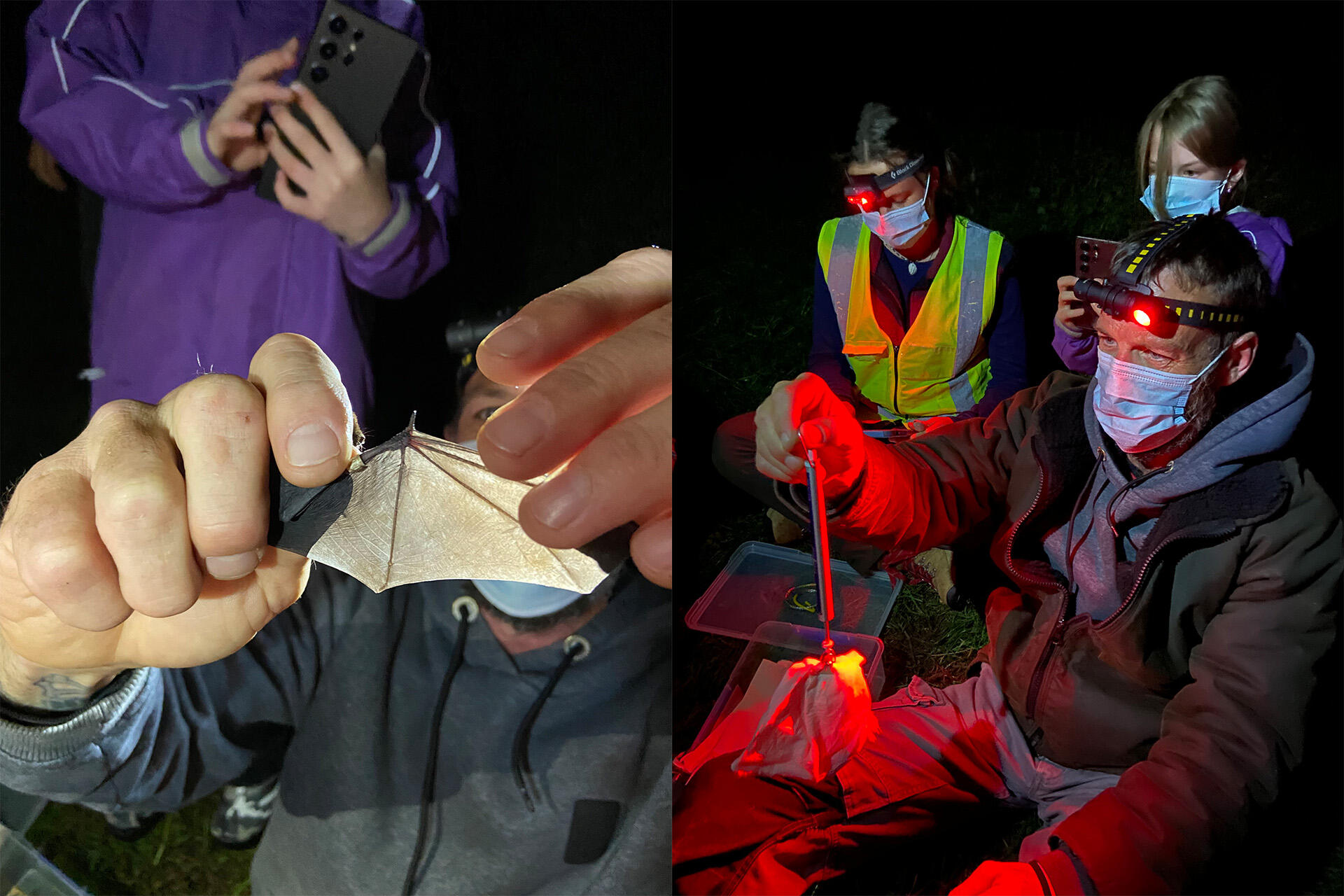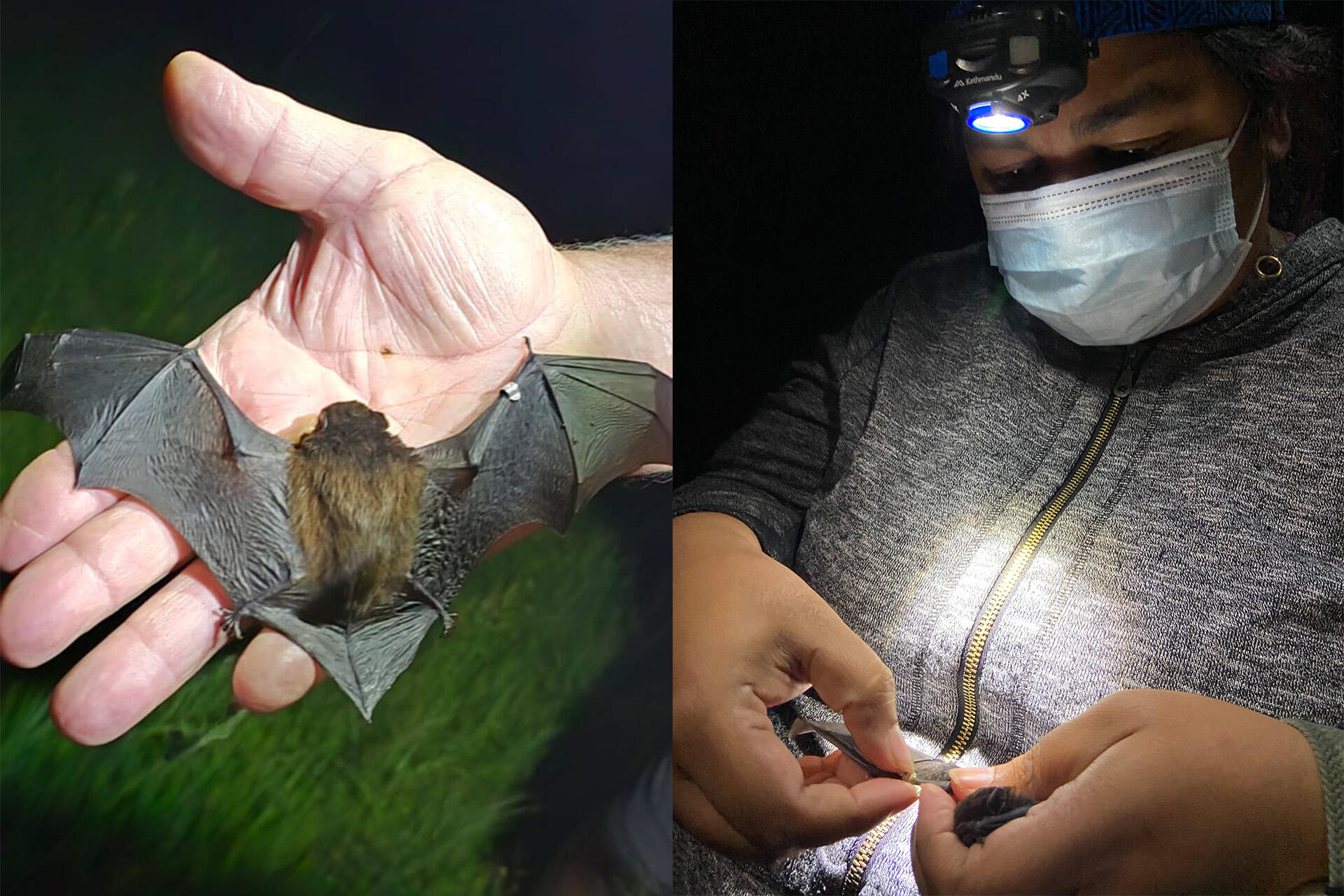Our Zoo staff have been assisting in an Auckland Council and Ngāti Te Ata Waiohua led project, supported by experts from EcoQuest, to learn more about the pekapeka/bats in the Franklin region.
Setting up before sundown, the team will safely collect bats in harp nets as they emerge from their roosts at night. Once they’re in hand, small radio transmitters are attached to each bat by certified handlers. These pekapeka/long-tailed bats are then released to carry on their nocturnal flight – which is where our team come in to help track them.
Pekapeka are classed as nationally critical (our highest threat classification!) due to the loss of adequate habitat for roosting and predation threats. Learning more about the roosting sites of these taonga, means that predator control can be more targeted and most effective.
In forests with predator control, the population of pekapeka are growing at a rate of 4-10% per year, yet in fragmented habitats without these protections the species is decreasing by 5-9% per year.







